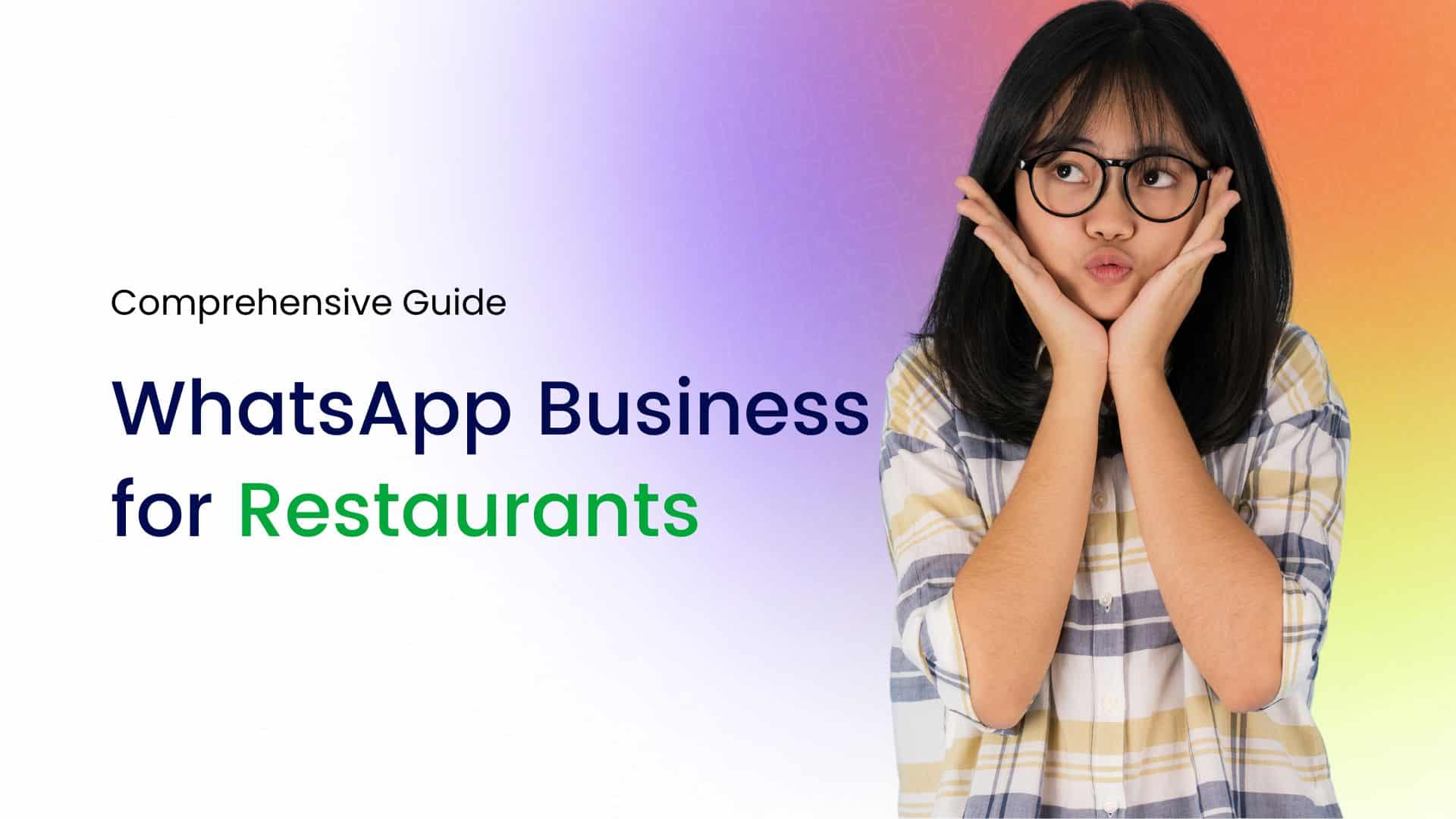In today’s fast-paced digital world, communication is key, and instant messaging platforms like WhatsApp have revolutionized the way we connect with one another. With over 2 billion users globally, WhatsApp has become a ubiquitous tool for personal and professional communication. However, as technology evolves, integrating artificial intelligence (AI) into WhatsApp opens up a plethora of opportunities to enhance user experience, streamline processes, and enable more efficient communication.
The Rise of AI Integration
AI integration into messaging platforms like WhatsApp represents a natural evolution in the realm of communication technology. By leveraging AI capabilities, WhatsApp can offer users a more personalized and intuitive experience while also providing businesses with powerful tools to engage with their customers more effectively.
Smart Replies and Chatbots
One of the most prominent features of AI integration in WhatsApp is the implementation of smart replies and chatbots. These AI-driven systems can analyze incoming messages and provide automatic responses based on predefined triggers or natural language processing algorithms. For businesses, this means they can handle customer inquiries, provide support, and even facilitate transactions without human intervention, thereby improving efficiency and reducing response times.
Personalized Recommendations and Suggestions
AI algorithms can analyze user data, such as conversation history, preferences, and behavior, to deliver personalized recommendations and suggestions directly within the WhatsApp interface. Whether it’s suggesting relevant products or services based on previous interactions or recommending restaurants or events based on location and interests, AI integration can significantly enhance the user experience by providing valuable and tailored content.
Enhanced Security and Privacy Measures
Integrating AI into WhatsApp can also bolster security and privacy measures, addressing concerns regarding data protection and unauthorized access. AI-powered systems can detect suspicious activities, such as phishing attempts or malware distribution, and alert users in real-time. Moreover, AI-driven encryption techniques can further strengthen the security of messages exchanged on the platform, ensuring end-to-end protection of user communications.
Streamlined Workflow Automation
For businesses leveraging WhatsApp for internal communication or customer engagement, AI integration can streamline workflow automation processes. By integrating AI-powered tools for task management, scheduling, and data analysis directly into WhatsApp, organizations can enhance collaboration, improve productivity, and facilitate seamless communication among team members.
Future Outlook and Challenges
While the integration of AI into WhatsApp holds immense promise, it also poses several challenges and considerations. Privacy concerns, data security, and ethical implications must be carefully addressed to ensure the responsible deployment of AI-driven features. Additionally, balancing automation with human interaction is essential to maintain the personal touch and authenticity of communication on the platform.
How to Integrate WhatsApp into Your Business
Integrating WhatsApp into your business is a relatively straightforward process, typically involving the use of third-party platforms or APIs (Application Programming Interfaces). Here are some steps to get started:
- Choose a WhatsApp Business Solution Provider: There are several third-party providers that offer WhatsApp Business APIs and integration solutions. Research and select a provider that best suits your business needs and requirements.
- Register Your Business: Once you’ve chosen a provider, you’ll need to register your business with WhatsApp Business. This typically involves providing business information and agreeing to WhatsApp’s terms and conditions.
- Integrate WhatsApp API: Work with your chosen provider to integrate the WhatsApp Business API into your existing systems and applications. This may involve technical implementation and configuration to ensure seamless integration.
- Customize and Configure: Customize your WhatsApp integration to align with your business objectives and requirements. This may include setting up automated responses, configuring message templates, and defining workflows.
- Test and Launch: Before launching your WhatsApp integration, thoroughly test the functionality and user experience to ensure everything is working as expected. Once you’re satisfied, launch your WhatsApp integration and start engaging with customers.
The What: AI-Powered Features in WhatsApp Integration
- Chatbots: One of the most prominent AI-driven features in WhatsApp integration is the deployment of chatbots. These virtual assistants leverage natural language processing (NLP) algorithms to understand user queries and provide relevant responses in real-time. Chatbots can handle various tasks, including customer support inquiries, order tracking, and service recommendations, thereby streamlining communication processes for businesses and individuals.
- Smart Replies: AI-driven smart replies analyze incoming messages and suggest contextually appropriate responses based on the conversation’s content. This feature not only saves time but also enhances communication efficiency by offering quick response options tailored to the conversation’s context.
- Message Filtering and Spam Detection: AI algorithms can analyze message content to identify spam, phishing attempts, and irrelevant messages, thereby enhancing user security and privacy. By automatically filtering out unwanted messages, AI integration helps maintain a clutter-free and secure messaging environment.
- Personalized Recommendations: Through AI-driven data analysis, WhatsApp can deliver personalized content recommendations, such as suggested contacts, groups, or products based on user behavior and preferences. This personalized approach enhances user engagement and fosters a more tailored communication experience.
The Why: Benefits of AI Integration in WhatsApp
- Enhanced User Experience: AI-driven features streamline communication processes, making interactions more efficient and convenient for users.
- Automation of Tasks: AI integration automates repetitive tasks, such as customer inquiries and message responses, reducing manual workload and improving productivity for businesses and individuals.
- Improved Security: AI-powered spam detection and message filtering enhance user security by identifying and filtering out malicious or unwanted content.
- Personalization: By analyzing user data, AI enables WhatsApp to deliver personalized recommendations and suggestions, catering to individual preferences and interests.
“In today’s fast-paced digital landscape, effective communication is the key to success. And when it comes to connecting with customers, WhatsApp has emerged as a dominant force. But what if we told you there’s a way to take your WhatsApp game to a whole new level? Sign up for AutoChat today”
The How: Implementing AI Integration in WhatsApp
- Developing AI Models: WhatsApp integrates AI by developing and deploying machine learning models and algorithms tailored to specific functionalities, such as chatbots, smart replies, and recommendation systems.
- Data Collection and Analysis: AI integration relies on data collection and analysis to train models and improve algorithm performance. WhatsApp gathers user data while ensuring privacy and security compliance.
- Testing and Optimization: Before deploying AI features, WhatsApp conducts rigorous testing to ensure functionality, performance, and user satisfaction. Continuous optimization based on user feedback and data analysis further enhances AI capabilities over time.
- User Education and Training: As AI-driven features are introduced, WhatsApp provides user education and training to familiarize users with new functionalities and maximize their benefits.
Exploring Effective Tools for WhatsApp Integration: Examples and Applications
In today’s digital era, communication is not just about exchanging messages but also about integrating seamlessly with various platforms. WhatsApp, being one of the most popular messaging applications worldwide, has become a vital channel for businesses to engage with their customers. With the rise of AI and automation, integrating WhatsApp with other tools and systems has become essential for enhancing efficiency and customer satisfaction. Let’s delve into some examples of WhatsApp integration tools that businesses can leverage to streamline their operations and improve communication.
- Twilio: Twilio is a cloud communications platform that offers a range of APIs for building messaging, voice, and video applications. With Twilio’s WhatsApp API, businesses can integrate WhatsApp messaging into their existing systems and workflows. This enables automated notifications, customer support, and personalized messaging, enhancing the overall customer experience.
- MessageBird: MessageBird is another communication platform that provides APIs for integrating various messaging channels, including WhatsApp. With MessageBird’s WhatsApp Business API, businesses can send transactional messages, notifications, and customer support messages via WhatsApp. The platform offers features like message templates, rich media support, and analytics to optimize communication strategies.
- ChatGPT: AI-powered chatbots have become increasingly popular for automating customer interactions. ChatGPT, powered by OpenAI’s GPT technology, can be integrated with WhatsApp to provide intelligent, conversational experiences. Businesses can deploy ChatGPT on WhatsApp to handle inquiries, provide information, and even process orders, reducing the burden on human agents and improving response times.
- Zapier: Zapier is a popular automation tool that allows users to connect different apps and automate workflows without any coding knowledge. With Zapier’s WhatsApp integration, businesses can create custom automation workflows to trigger actions based on events in WhatsApp. For example, sending automated follow-up messages to new leads or updating CRM systems with WhatsApp interactions.
- HubSpot: HubSpot is a comprehensive CRM platform that offers integrations with various messaging channels, including WhatsApp. With HubSpot’s WhatsApp integration, businesses can centralize customer communication, track interactions, and automate personalized messaging based on customer data. This enables businesses to provide a seamless omnichannel experience to their customers.
- Zendesk: Zendesk is a customer service platform that offers integrations with WhatsApp for managing customer support inquiries. With Zendesk’s WhatsApp integration, businesses can create tickets directly from WhatsApp messages, track conversation history, and collaborate with team members to resolve issues efficiently. This ensures a consistent and timely response to customer queries across multiple channels.
- Salesforce: Salesforce is a leading CRM platform that offers integrations with WhatsApp for sales and marketing automation. With Salesforce’s WhatsApp integration, businesses can capture leads from WhatsApp conversations, nurture them through automated workflows, and track their journey through the sales funnel. This enables businesses to leverage WhatsApp as a powerful channel for generating and converting leads.
Conclusion
The integration of AI into WhatsApp represents a significant milestone in the evolution of communication technology. By leveraging AI-driven features such as smart replies, personalized recommendations, and enhanced security measures, WhatsApp can offer users a more intuitive and secure messaging experience. For businesses, AI integration opens up new opportunities to engage with customers, streamline processes, and drive innovation. As technology continues to advance, the synergy between AI and messaging platforms like WhatsApp will undoubtedly play a central role in shaping the future of communication.
WhatsApp integration offers businesses a powerful platform for enhancing communication, improving efficiency, and delivering exceptional customer experiences. By leveraging the features and benefits of WhatsApp integration, businesses can stay connected with customers in real-time, automate processes, personalize interactions, and gain valuable insights into customer behavior. Whether you’re a small startup or a large enterprise, integrating WhatsApp into your business can help you unlock new opportunities and drive success in today’s digital age.
Integrating WhatsApp with other tools and platforms can significantly enhance communication, automation, and customer engagement for businesses. Whether it’s leveraging AI-powered chatbots, automating workflows with Zapier, or centralizing customer communication with CRM systems, there are numerous tools available to streamline WhatsApp integration and drive business growth. By embracing these tools and technologies, businesses can stay ahead of the curve and deliver exceptional experiences to their customers on the world’s most popular messaging platform.







